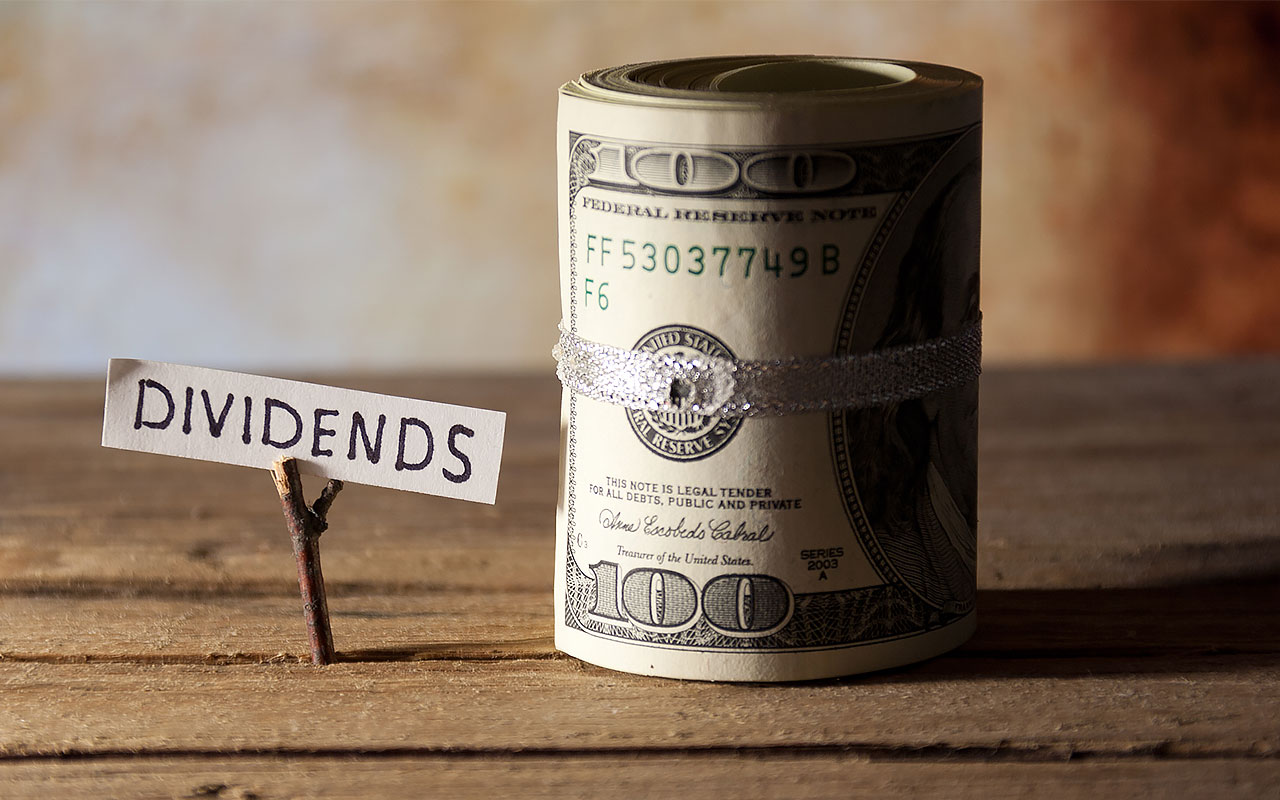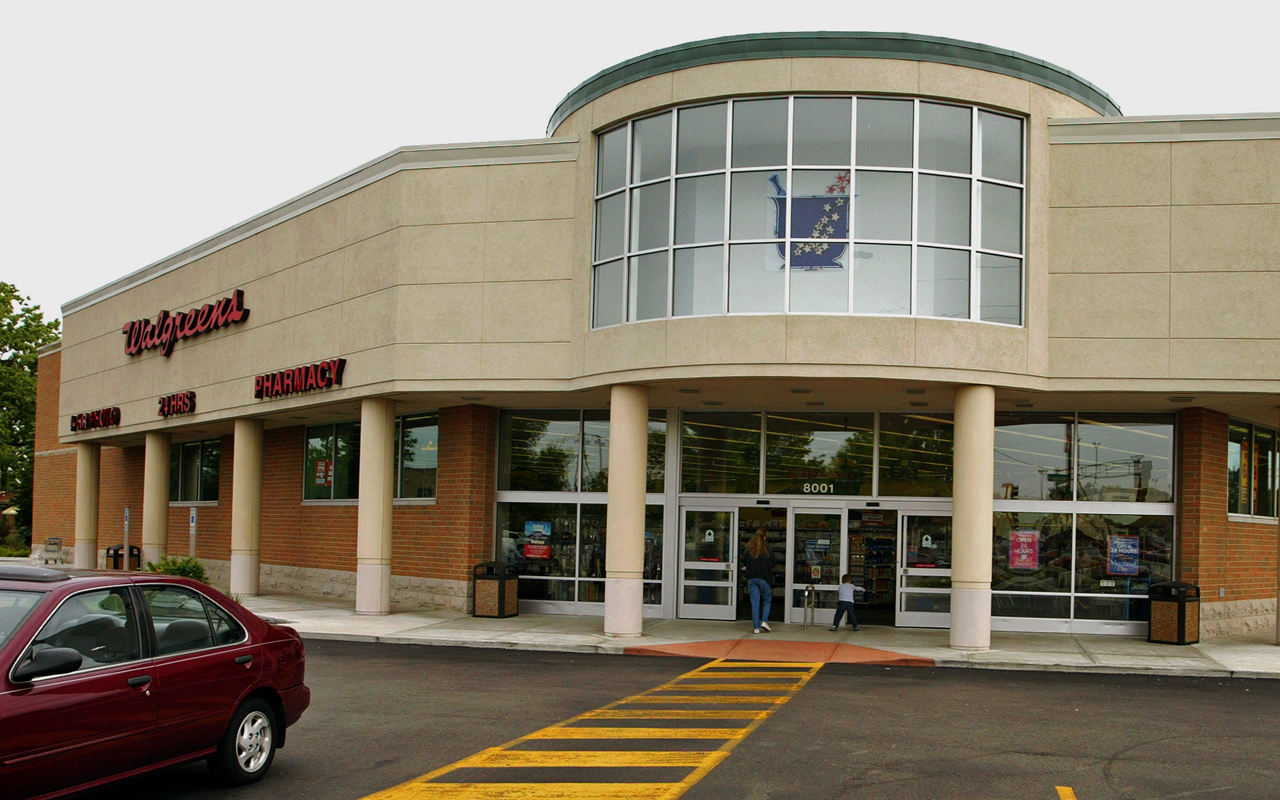8 REITs to Buy for Bargain Prices, Bloated Dividends
Real estate investment trusts (REITs) have been on a wild ride over the past several years.


Profit and prosper with the best of Kiplinger's advice on investing, taxes, retirement, personal finance and much more. Delivered daily. Enter your email in the box and click Sign Me Up.
You are now subscribed
Your newsletter sign-up was successful
Want to add more newsletters?

Delivered daily
Kiplinger Today
Profit and prosper with the best of Kiplinger's advice on investing, taxes, retirement, personal finance and much more delivered daily. Smart money moves start here.

Sent five days a week
Kiplinger A Step Ahead
Get practical help to make better financial decisions in your everyday life, from spending to savings on top deals.

Delivered daily
Kiplinger Closing Bell
Get today's biggest financial and investing headlines delivered to your inbox every day the U.S. stock market is open.

Sent twice a week
Kiplinger Adviser Intel
Financial pros across the country share best practices and fresh tactics to preserve and grow your wealth.

Delivered weekly
Kiplinger Tax Tips
Trim your federal and state tax bills with practical tax-planning and tax-cutting strategies.

Sent twice a week
Kiplinger Retirement Tips
Your twice-a-week guide to planning and enjoying a financially secure and richly rewarding retirement

Sent bimonthly.
Kiplinger Adviser Angle
Insights for advisers, wealth managers and other financial professionals.

Sent twice a week
Kiplinger Investing Weekly
Your twice-a-week roundup of promising stocks, funds, companies and industries you should consider, ones you should avoid, and why.

Sent weekly for six weeks
Kiplinger Invest for Retirement
Your step-by-step six-part series on how to invest for retirement, from devising a successful strategy to exactly which investments to choose.
Real estate investment trusts (REITs) have been on a wild ride over the past several years. Investors couldn’t get enough of this dividend-friendly sector following the 2008 meltdown. The comparatively high yields were attractive in a world where savings accounts yielded zero and longer-term bond yields scraped near all-time lows.
But the 2013 “taper tantrum,” Janet Yellen’s move in 2015 to move the target fed funds rate above 0% and Donald Trump’s election (prompting fears of inflation) all shook the bond market. That in turn shook assets, such as REITs, that were treated as “bond substitutes.” After each scare, REIT prices recovered their losses … only to see them evaporate again with the next scare.
REIT prices have gone nowhere since early 2015. Remarkably, they’re also sitting at levels first seen in 2007, over a decade ago.
No surprise, then, that many REITs are attractively priced right now. REITs also sport significantly higher yields as a sector than investment-grade corporate bonds, and – unlike bond coupon payments – their dividends tend to rise over time. REITs also trade at cheaper valuations than private equity real estate funds, which doesn’t make a lot of sense given their superior liquidity. That kind of disconnect typically only happens during bear markets and panics when the baby gets thrown out with the bathwater.
Let’s use this disconnect to our advantage. Here are eight REITs to buy while they trade at respectable prices and pay solid dividends.
Data is as of Sept. 17, 2018. Dividend yields are calculated by annualizing the most recent quarterly payout and dividing by the share price. REITs are listed by dividend yield, from lowest to highest.

Taubman Centers
- Market value: $3.8 billion
- Dividend yield: 4.3%
We’ll start with Taubman Centers (TCO, $61.58) – a retail REIT that specializes in shopping centers, and that has taken its licks in recent years.
From 2012-16, TCO traded in a range of around $65 to $80 per share. But shares started sliding in the second half of 2016 and have yet to fully recover; at the time of writing, it traded below $62.
Taubman was hit from several different angles. Like all REITs, it proved sensitive to interest rates. Beyond that, Taubman has been a retail landlord during a time when Amazon.com (AMZN) and e-commerce in general are growing … at the expense of brick-and-mortar stores.
Still, there’s a lot to like about TCO. Retail broadly may be in the midst of a painful adjustment, but Taubman specializes in high-end retail and outlet malls. As REIT analyst Brad Thomas recently wrote, “Taubman’s long-standing focus on quality is the foundation of the company and this the primary differentiator that separates the best from the rest. Taubman Centers is a landlord to many of the highest quality retailers, including Tiffany, Dolce & Gabbana and others.”
A prolonged retail downturn might take a bite out of Taubman’s share price. But consumers are showing the most confidence we’ve seen in years and are flashing no signs of slowing down.

National Retail Properties
- Market value: $7.1 billion
- Dividend yield: 4.4%
- National Retail Properties (NNN, $45.29) is a conservative triple-net retail REIT specializing in high-traffic, single-tenant retail properties. NNN holds 18.8% of its portfolio in convenience stores, followed by 12.1% and 7.9% in full-service and fast-food restaurants, respectively. Its largest single tenant is 7-Eleven, which makes up 5.6% of the portfolio.
Nothing can truly be considered “Amazon-proof” these days, but National Retail’s tenants come awfully close.
A triple-net REIT refers to the triple-net lease, in which the tenant isn’t just responsible for paying rent and utilities, but also property taxes, insurance and upkeep. REITs that specialize in these arrangements have much steadier (and thus more predictable) income.
National Retail is a dividend-raising powerhouse that has hiked its payout for 28 consecutive years and counting. That’s enough to qualify for membership in the Dividend Aristocrats – however, NNN isn’t a member of the Standard & Poor’s 500-stock index.
National Retail’s share price got a little bubbly in 2016, topping out at $53.60. At that price, it sported a rather unattractive dividend yield of just 3.3%. Today, shares yield a much more attractive 4.4%.

Realty Income
- Market value: $16.9 billion
- Dividend yield: 4.5%
No high-quality REIT portfolio is complete without triple-net retail REIT Realty Income (O, $58.17).
As the owner of utility high-traffic properties, such as pharmacies, convenience stores and gyms, Realty Income isn’t the most exciting stock you can buy. But while it may be boring, it’s no slouch. The stock has delivered compound average annual total returns of 15.8% since going public in 1994 and has raised its dividend for 83 consecutive quarters.
You can think of Realty Income as a stock with the consistency of a bond – a bond that pays monthly and tends to raise its payout at least once per quarter.
In the mad rush for income in recent years, Realty Income’s stock price got a bit bubbly in 2015 and 2016, when it topped out at an all-time high above $72 per share. No matter how wonderful a business is, there is a price at which its stock no longer makes sense to own. For Realty Income, that point came in 2016 when the shares yielded barely 3.3%.
But after two additional years of dividend hikes and a significant stock correction, those shares are looking a lot more reasonable at today’s prices.

Healthcare Trust of America
- Market value: $5.7 billion
- Dividend yield: 4.5%
America’s health-care system is in a state of flux. Many Republicans still hold out hope of repealing the Affordable Care Act, while Democrats dream of providing socialized medicine for all. Meanwhile, both the government (in the form of Medicare and Medicaid) and private insurers appear to be getting stingier in their reimbursements.
This is a complicated time to be working in medicine. But one thing is for certain: As America ages, its population will require more and more medical services. Hospitals and nursing homes, however, may never get to fully profit from these trends thanks to politics. But one area of medical real estate that should be largely immune to whatever comes next is medical office buildings.
Doctors and surgeons will continue to pay their rent, even if their profits get crimped by new regulations or payment schemes. And as one of the largest landlords in the medical office space, Healthcare Trust of America (HTA, $27.49) is in position to profit.
HTA’s shares aren’t as beaten-up as some of the other REITs mentioned today, but they’re significantly below their old 2016 highs. In 2016, they topped out at more than $34 per share. Today, they’re priced more reasonably and deliver a nice yield of 4.5%.

STORE Capital Corporation
- Market value: $5.9 billion
- Dividend yield: 4.6%
- STORE Capital Corporation (STOR, $28.57) is another REIT that hasn’t been punished as much as others on this list. In fact, shares are close to hitting new all-time highs.
But this newfound enthusiasm came only after Warren Buffett’s Berkshire Hathaway took a major position in the stock in 2017. Berkshire owns more than 18 million shares, accounting for 9% of the total outstanding, and it’s among Buffett’s highest-yielding stocks.
“STORE” stands for “single-tenant operational real estate,” and the REIT specializes in smaller retail properties that other REITs can’t or won’t touch. STORE also does a lot more research at the individual property level than most of its peers. While most landlords focus on the creditworthiness of the tenants, STORE focuses on the profitability of the individual property. That level of granularity is rare.
Importantly, in the age of Amazon and other online retailers, STORE also focuses on service-based businesses. Two-thirds of its rents come from service providers, including everything from restaurants to the local dentist.
STORE isn’t the cheapest REIT right now thanks to Buffett-fueled optimism, but it is a high-quality operator that would be a nice addition to most income portfolios.

EPR Properties
- Market value: $5.2 billion
- Dividend yield: 6.2%
Unusual REITs that don’t fit a typical style box can make excellent investments because they often fall through the cracks and are overlooked by institutional buyers. A good example is EPR Properties (EPR, $69.44), which specializes in recreational and educational properties.
You’ll find assets in EPR’s portfolio you’re not going to find too many other places: movie theaters, Topgolf driving ranges and ski resorts, to name a few.
This diversity creates risks in that these types of properties are not easily repurposed. What exactly would you do with a repossessed driving range? Furthermore, these types of properties are often far less liquid, as there tend to be fewer buyers for them.
But that’s exactly why EPR’s experience in this sector is so valuable and why the REIT has been able to consistently generate market-beating returns. Since its inception in 1997 through the end of the second quarter, the REIT had generated total returns of 1,458% vs. 476% for the MSCI US REIT Index.
All the same, the stock has been stuck in a rut for more than two years. But its current price is well below its all-time highs above $84 per share set back in 2016, and its yield is north of 6%.

VEREIT
- Market value: $7.4 billion
- Dividend yield: 7.2%
Poor VEREIT (VER, $7.61) gets no respect.
Part of this is due to the company’s inauspicious beginnings. The commercial real estate REIT was born from the implosion of scandal-ridden American Realty Capital. Back in 2014, the trust was embroiled in an accounting scandal when it misstated earnings and tried to cover it up.
The SEC didn’t look kindly on that, and many of the REIT’s executives faced criminal charges.
The good news is that all those responsible are long gone, and the company is now run by veritable Boy Scouts. Glenn Rufrano, who took over in 2015, has done a fine job of restoring the REIT’s integrity and its credit rating. Yet shares still are trading at a deep discount to their old highs.
VER trades at less than $8 per share. The stock fetched just more than $18 per share back in 2013 and $11 as recently as two years ago.
VEREIT may not have the pedigree that Realty Income and National Retail have, but it holds similar properties and trades at a vastly cheaper valuation. Shares are volatile, but at a current yield north of 7%, you’re getting paid handsomely to ride out that roller coaster.

Omega Healthcare Investors
- Market value: $6.6 billion
- Dividend yield: 8.0%
Skilled nursing REIT Omega Healthcare Investors (OHI, $33.09) dropped like a rock starting about a year ago, dropping from more than $32 per share to a low under $25 earlier this year.
The shares have recouped those losses in the six months that have passed, however, and still remain well below the stock’s all-time high of $45.46 set back in January 2015.
Omega’s slide over the past four years hasn’t been completely without reason. The skilled nursing industry is getting pinched from all sides, with lower reimbursements from the Medicare and Medicaid crimping revenue at a time when labor costs are rising. The space has also suffered some high-profile failures, including Omega tenant Orianna Facilities, which filed for Chapter 11 bankruptcy reorganization earlier this year.
Omega announced it wouldn’t raise its dividend this year, which rubbed some investors the wrong way. Frankly, it was the prudent move. And at current levels, the 8% dividend looks sustainable even if we see continued weakness. OHI pays out about 85% of its funds from operations (FFO) as dividends, giving it plenty of wiggle room.
Charles Sizemore was long EPR, O, OHI and VER as of this writing.
Profit and prosper with the best of Kiplinger's advice on investing, taxes, retirement, personal finance and much more. Delivered daily. Enter your email in the box and click Sign Me Up.

Charles Lewis Sizemore, CFA is the Chief Investment Officer of Sizemore Capital Management LLC, a registered investment advisor based in Dallas, Texas, where he specializes in dividend-focused portfolios and in building alternative allocations with minimal correlation to the stock market.
-
 Dow Adds 1,206 Points to Top 50,000: Stock Market Today
Dow Adds 1,206 Points to Top 50,000: Stock Market TodayThe S&P 500 and Nasdaq also had strong finishes to a volatile week, with beaten-down tech stocks outperforming.
-
 Ask the Tax Editor: Federal Income Tax Deductions
Ask the Tax Editor: Federal Income Tax DeductionsAsk the Editor In this week's Ask the Editor Q&A, Joy Taylor answers questions on federal income tax deductions
-
 States With No-Fault Car Insurance Laws (and How No-Fault Car Insurance Works)
States With No-Fault Car Insurance Laws (and How No-Fault Car Insurance Works)A breakdown of the confusing rules around no-fault car insurance in every state where it exists.
-
 The 24 Cheapest Places To Retire in the US
The 24 Cheapest Places To Retire in the USWhen you're trying to balance a fixed income with an enjoyable retirement, the cost of living is a crucial factor to consider. Is your city the best?
-
 5 Stocks to Sell or Avoid Now
5 Stocks to Sell or Avoid Nowstocks to sell In a difficult market like this, weak positions can get even weaker. Wall Street analysts believe these five stocks should be near the front of your sell list.
-
 Best Stocks for Rising Interest Rates
Best Stocks for Rising Interest Ratesstocks The Federal Reserve has been aggressive in its rate hiking, and there's a chance it's not done yet. Here are eight of the best stocks for rising interest rates.
-
 The Five Safest Vanguard Funds to Own in a Volatile Market
The Five Safest Vanguard Funds to Own in a Volatile Marketrecession The safest Vanguard funds can help prepare investors for market tumult but without high fees.
-
 The 5 Best Inflation-Proof Stocks
The 5 Best Inflation-Proof Stocksstocks Higher prices have been a major headache for investors, but these best inflation-proof stocks could help ease the impact.
-
 5 of the Best Preferred Stock ETFs for High and Stable Dividends
5 of the Best Preferred Stock ETFs for High and Stable DividendsETFs The best preferred stock ETFs allow you to reduce your risk by investing in baskets of preferred stocks.
-
 What Happens When the Retirement Honeymoon Phase Is Over?
What Happens When the Retirement Honeymoon Phase Is Over?In the early days, all is fun and exciting, but after a while, it may seem to some like they’ve lost as much as they’ve gained. What then?
-
 5 Top-Rated Housing Stocks With Long-Term Growth Potential
5 Top-Rated Housing Stocks With Long-Term Growth Potentialstocks Housing stocks have struggled as a red-hot market cools, but these Buy-rated picks could be worth a closer look.
